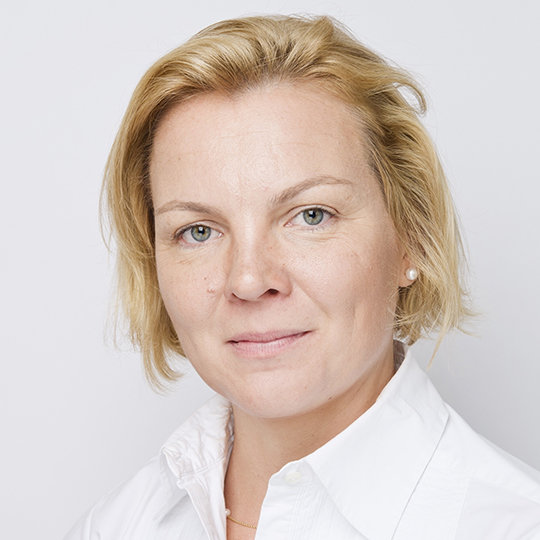on this page
-
Markets
Buildings & places
-
Location
Middle East

Johanna Staples
Regional Director Strategy and Advisory, Dubai, United Arab Emirates contact form+971 4 405 9300

Anastasios Dimas
Regional Technology Director, Dubai, United Arab Emirates contact form+971 4 405 9300
The world of construction is changing rapidly.
It may not always feel like it, but from what we build to the way we build it, a new interest in sustainability, liveability and our cultural heritage is reshaping our homes, businesses, and cities.
And as our Earth warms up and the demand for resources grows, it’s becoming clear that we are going to have to keep changing. There are no other options.
So we interviewed some of the experts at AtkinsRéalis Middle East to find out more about the changes shaking up the world of architecture, engineering and construction, and how new technologies and techniques are improving the way we build – and the way we live.
When you look at the world today, half of our population lives in cities and urban areas. This puts an enormous demand on resources – and as the population grows so does this demand. But it also presents an interesting opportunity for urban planners and administrators.
Smart cities use technology and data to improve quality of life, boost efficient use of public services, and drive sustainability. For example, by tracking energy and water consumption, smart cities can help urban planners meet global warming and decarbonization targets, while grid management can support the growth and roll-out of EV charging infrastructure. In the words of our Regional Controls and Assurance Director Oliver Kallenborn, “You want to be smarter because you can manage what you measure, and smart cities help you measure more.” But is it really that easy?
“Everyone talks about smart cities,” the Digital Lead for Land Development Attila Vidra explains, “But even amongst industry professionals, there is no one common definition for a smart city. This can be very challenging when they are requested in proposals, because without commonly accepted definitions, it is difficult to know which standards apply, or even if we are all talking about the same thing.”
This can pose a major challenge to smart city adoption, particularly when the focus is too much on the technology – rather than what it can do for us. Johanna Staples, our Regional Director for the Middle East really emphasizes this - “You have to focus on the end result. If we look back ten years ago when interest in smart cities was really beginning, the challenge was that they were always considered in isolation and treated as a separate technology project instead of an integral part of the whole urban planning process. This really limits the impact and makes it difficult to realize the benefits, because it misses the key point of smart cities and of data collection generally – which is that it’s not about what you have, but what you can do with it.”
In this landscape, a solid working definition for a smart city is key to unlocking their real potential. At AtkinsRéalis we define it as:
A forward-thinking urban environment that leverages data, technology, and innovation to enhance the quality of life for its residents while optimizing resource utilization, promoting sustainability in its broader context, and future-proofing the city's resilience. In our definition, we emphasize the integration of digital solutions and data-driven decision-making processes.
But, as with any good definition, what’s excluded is as important as what’s not. And at AtkinsRéalis we exclude narrow interpretations of smart cities that focus on technology deployment without a strong focus on broader urban development goals. Or in other words, technology deployed for its own sake.
We have already seen great examples of smart cities done well. Johanna Staples highlights Dubai’s Smart Dubai initiative as a particularly strong example, successfully integrating a diverse range of technologies to streamline government operations, enhance citizen services, and implement advanced transportation solutions (including AI powered traffic management systems and autonomous vehicles). Qatar’s use of smart technologies for the FIFA World Cup in 2022 to support safety and security is also a great example of how technology can be used not only for convenience but to safeguard public safety. And with a host of ambitious new smart city projects on the horizon, such as The Line at Neom, we can expect to see great strides in innovation and adoption.
These mega-projects offer unique opportunities to adopt and embrace new technologies – for example by allowing planners to build smart capabilities into our cities from the beginning rather than retrofitting. Combined with the unique challenges presented by developing such remote, culturally and/or environmentally sensitive sites, rapid innovation will be integral to project success. As Johanna points out, “Progress will probably be quicker than in other regions – even those with more mature markets – just because of the unique challenges, the rate of expansion and the money being invested.”
There are still plenty of challenges we’ll have to overcome along the way. As an industry, we face a shortage of skilled professionals that can only be fixed by significant investment into youth digital skills. But there are also broader challenges: fostering a cultural shift towards a more innovative approach; engaging with and harnessing the expertise of academic institutions; tapping the creativity and agility of our startup ecosystem; and above all, a step-change in the way we manage our data governance, sharing and security.
At an organizational level, there’s also plenty that we can do. Anastasios Dimas, our Regional Digital Delivery Lead, emphasizes the power of good communication - “You really need to communicate with and listen to the people in the business who will actually have to complete these tasks. Understanding how they work, how they measure success, and what drives them is integral to designing and implementing solutions that will really work. Then you need to set KPIs to measure this impact, to understand where you are succeeding, and where improvements can still be made.” Oliver Kallenborn agrees and adds that “I’ve always said digital is about people, not about technology. Unless you can find that talent and upskill your people, you can’t even truly understand what new technologies can really do for you, let alone embed them in your business. But as we widen these skills sets – and we’ve particularly been putting a lot of emphasis at AtkinsRéalis on hiring team members with a wide variety of digital skills and specializations – you can see incredible potential in this industry.”
This article was written with contributions from Oliver Kallenborn, Anastasios Dimas, Attila Vidra and Johanna Staples.
Please note that you are now leaving the AtkinsRéalis website (legal name: AtkinsRéalis Group inc.) and entering a website maintained by a third party (the "External Website") and that you do so at your own risk.
AtkinsRéalis has no control over the External Website, any data or other content contained therein or any additional linked websites. The link to the External Website is provided for convenience purposes only. By clicking "Accept" you acknowledge and agree that AtkinsRéalis is not responsible, and does not accept or assume any responsibility or liability whatsoever for the data protection policy, the content, the data or the technical operation of the External Website and/or any linked websites and that AtkinsRéalis is not liable for the terms and conditions (or terms of use) of the External Website. Further, you acknowledge and agree that you assume all risks resulting from entering and/or using the External Website and/or any linked websites.
BY ENTERING THE EXTERNAL WEBSITE, YOU ALSO ACKNOWLEDGE AND AGREE THAT YOU COMPLETELY AND IRREVOCABLY WAIVE ANY AND ALL RIGHTS AND CLAIMS AGAINST ATKINSRÉALIS, AND RELEASE, DISCHARGE, INDEMNIFY AND HOLD HARMLESS ATKINSRÉALIS, ITS OFFICERS, EMPLOYEES, DIRECTORS AND AGENTS FROM ANY AND ALL LIABILITY INCLUDING BUT NOT LIMITED TO LIABILITY FOR LOSS, DAMAGES, EXPENSES AND COSTS ARISING OUT OF OR IN CONNECTION WITH ENTERING AND/OR USING THE EXTERNAL WEBSITE AND/OR ANY LINKED WEBSITES AND ANY DATA AND/OR CONTENT CONTAINED THEREIN.
Such waiver and release specifically includes, without limitation, any and all rights and claims pertaining to reliance on the data or content of the External Website, or claims pertaining to the processing of personal data, including but not limited to any rights under any applicable data protection statute. You also recognize by clicking “Accept” that the terms of this disclaimer are reasonable.
The information provided by Virtua Research cited herein is provided “as is” and “as available” without warranty of any kind. Use of any Virtua Research data is at a user’s own risk and Virtua Research disclaims any liability for use of the Virtua Research data. Although the information is obtained or compiled from reliable sources Virtua Research neither can nor does guarantee or make any representation or warranty, either express or implied, as to the accuracy, validity, sequence, timeliness, completeness or continued availability of any information or data, including third-party content, made available herein. In no event shall Virtua Research be liable for any decision made or action or inaction taken in reliance on any information or data, including third-party content. Virtua Research further explicitly disclaims, to the fullest extent permitted by applicable law, any warranty of any kind, whether express or implied, including warranties of merchantability, fitness for a particular purpose and non-infringement.
The consensus estimate provided by Virtua Research is based on estimates, forecasts and predictions made by third party financial analysts, as described above. It is not prepared based on information provided by AtkinsRéalis and can only be seen as a consensus view on AtkinsRéalis' possible future results from an outside perspective. AtkinsRéalis has not provided input on these forecasts, except by referring to past publicly disclosed information. AtkinsRéalis does not accept any responsibility for the quality or accuracy of any individual or average of forecasts or estimates. This web page contains forward-looking statements based on current assumptions and forecasts made by third parties. Various known and unknown risks, uncertainties and other factors could lead to material differences between AtkinsRéalis' actual future results, financial situation, development or performance, and the estimates given here.
Downloads
Trade releases
